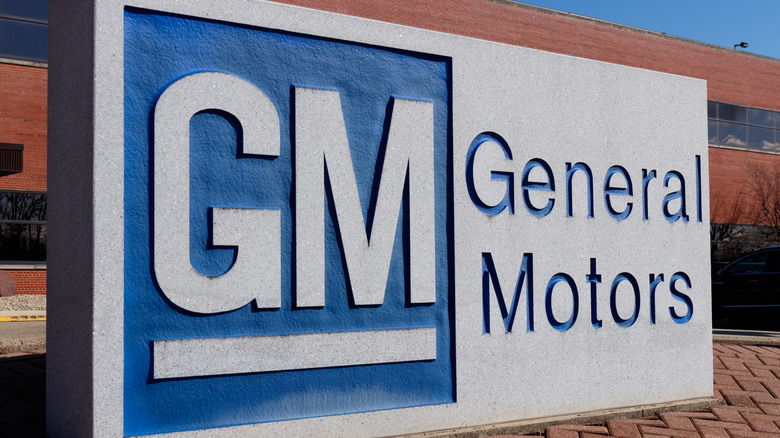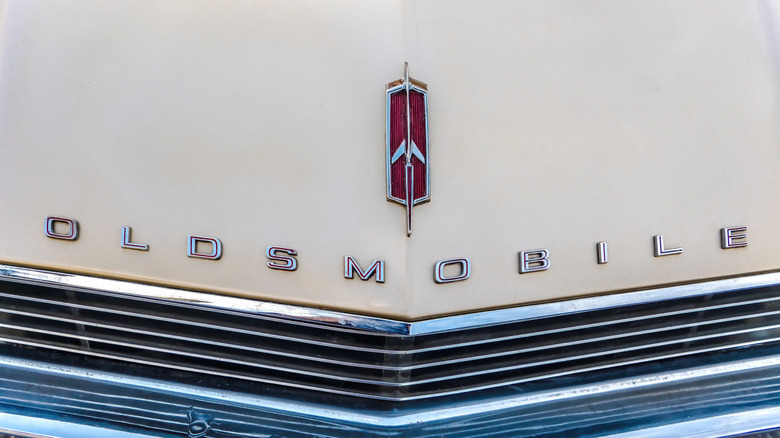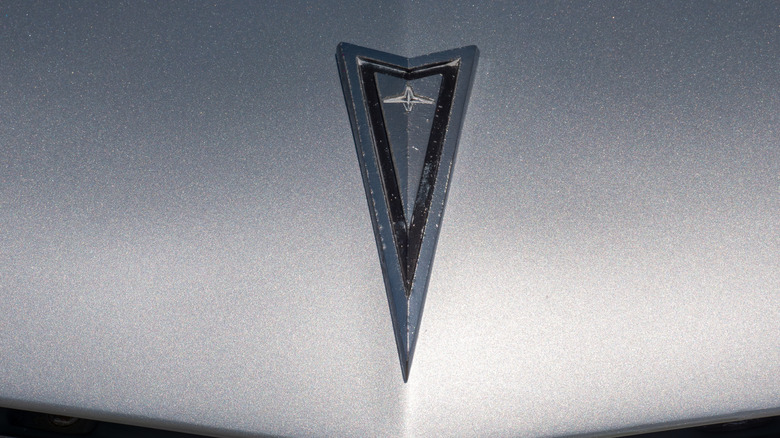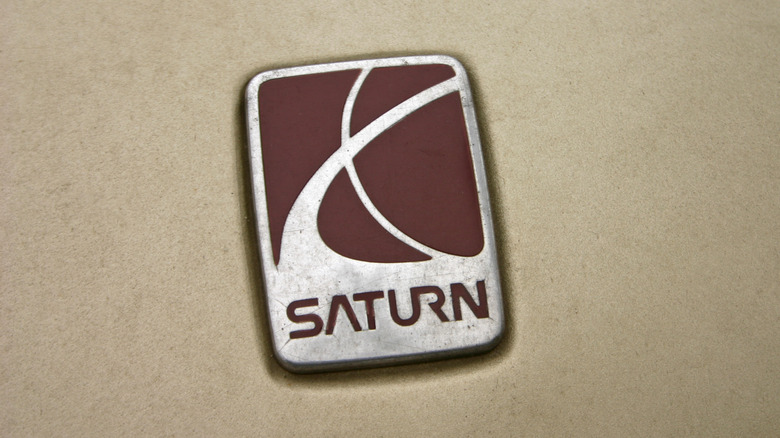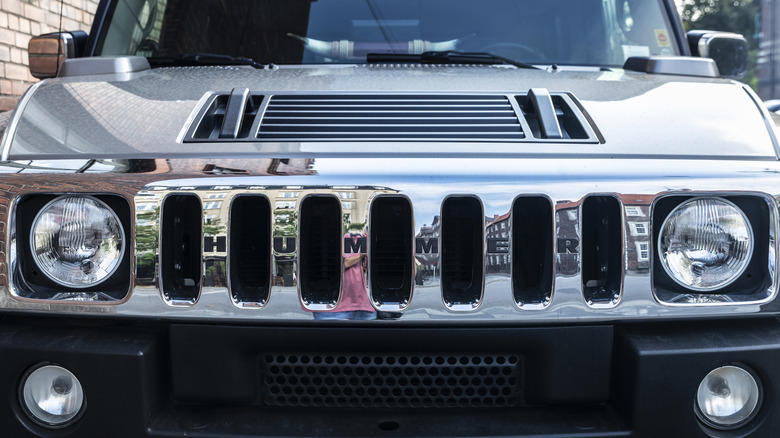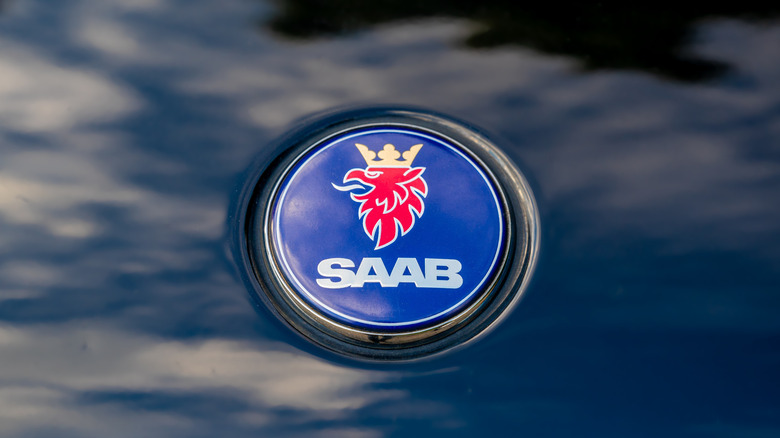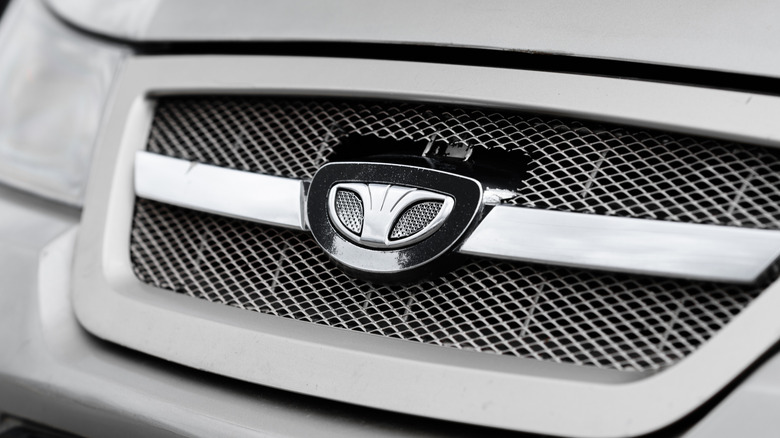Every Car Brand Discontinued By GM, So Far
Since the company's founding in 1886, General Motors has become one of the biggest manufactures in the American automobile industry. In the earliest days of its existence, it was called the Flint Road Cart Company and was primarily concerned with building horse-drawn carriages. The company as we know it today started coming into shape when it rebranded as General Motors in 1908, and in the ensuing century-plus, GM has been behind some of the best-loved cars, trucks, and sport utility vehicles that have graced the roadways around the world.
Among the more high-profile offerings in the greater General Motors stable these days are industry titans like Chevrolet, GMC, Cadillac, and Buick, and there's little reason to expect any of those iconic brands to fade from General Motors' ranks anytime soon. But it is worth noting that, throughout its existence, the number of automobile brands under the GM banner has stretched far beyond just those major automakers.
In fact, those iconic and long-tenured manufacturers have, at times, shared the corporate bloodline with some equally notable automobile brands. If you're wondering why those brands are no longer listed among the company's offerings, the big bosses at GM have, for one reason or another, opted to move on from them over the years by either selling or outright discontinuing them. Here's a look at all the car brands GM has discontinued to date.
Oldsmobile
Yes, there are a couple of legitimately iconic automobile brands that have fallen under the axe at General Motors since the company started making cars, and it's safe to say that Oldsmobile is one of the most prominent. As it was, Oldsmobile was also one of the longest-tenured vehicles under the GM umbrella at the time of its demise, with the company purchasing the Lansing, Michigan-based, auto brand in 1908.
As hard as it is to believe, two decades have passed since the last Oldsmobile — a dark-cherry colored Alero – drove off the production line at the Lansing facility. While the Oldsmobile name will no doubt forever hold a place in the annals of American automotive history, the name is already beginning to fade from the general public's consciousness, with builds bearing the brand's badge rarely seen on the road these days.
During the heyday of the once legendary Oldsmobile brand, however, that badge was a regular presence on the freeways and city streets of North America and beyond. Per some reports, the brand ranked among GM's best sellers even through the 1980s, when it was still moving more than 1 million units per year. The tides shifted, however, in the 1990s, with sales dropping off too much for GM to ignore. As such, when early-2000s models like the Alero, Aurora, and Bravada SUV failed to right the proverbial ship for Oldsmobile, the writing was on the wall, and GM bosses officially pulled the plug on the brand in 2004.
Pontiac
On the subject of legitimately iconic brands that have been discontinued by General Motors over the years, arguments could be made that, at least in terms of pop-culture legacy, Pontiac ranks above even Oldsmobile. Like its legendary but now defunct stablemate, Pontiac was part of the GM family of brands for almost a century, with the brand name being spawned from Oakland Motor Car. GM purchased Oakland in 1909, and in the 1920s, the first Pontiac car was born as part of the latter company's brand.
GM dropped the Oakland name in favor of Pontiac in the 1930s, and the brand would become a solid performer for the Michigan-based company for the next several decades. Along the way, Pontiac would also become one of the preeminent brand names in the American muscle car movement of the '60s and '70s, with models like the aptly-named GTO, Trans Am, and Firebird ranking among the best-loved builds of the era.
Pontiac would continue to be a solid seller for GM through the ensuing decades. But once the 2000s hit, Pontiac and other GM brands were being outsold by Toyota, which took over the title of world's best-selling automotive manufacturer from GM in 2008. It was that same year that the American economy took a shocking nosedive that eventually led GM to accept a government bailout. Looking to save money anywhere it could amid Chapter 11 filings, survival ultimately meant discontinuing the Pontiac brand altogether, with production coming to an end in 2010.
Saturn
Though the brand was essentially under the General Motors banner from its inception to its 2010 demise, we'd wager that there are still a few folks out there that don't even realize Saturn was actually a subsidiary of General Motors. That is in no small part because Saturns didn't really look like any other vehicles manufactured under the GM umbrella, with their smaller frames bearing a closer resemblance to Japanese builds of the era. There's good reason for that, as Saturn was essentially tabbed as the brand GM hoped might compete against competitors imported from Asian markets.
The Saturn brand was largely successful in that capacity, helping GM keep pace in the competitive arena of fuel-efficient compact and mid-size vehicles. As the story goes, Saturn's first concept car was built in 1984, with the company officially being formed a year later. At that time, however, Saturn was a private entity owned by former GM bosses. By the late-80s, GM had officially acquired the brand, with the first Saturn builds rolling off production lines in 1990.
Saturn's were an immediate hit, and by 1994 were ranked among the top three best-selling cars in America. The vehicles would remain popular with consumers for most of the 1990s and early-2000s, though by the mid-aughts popularity was beginning to wane. Theories abound as to what went wrong at Saturn, with some positing mismanagement at GM, as well as issues with UAW and a changing market for its demise. Whatever the case, the brand didn't survive GM's Chapter 11 debacle in 2009, with the company discontinuing the brand a year later.
Hummer
Not many vehicles manufactured under the General Motors banner made a bigger splash than the Hummer. But in the 1990s, the vehicles were very much part of the pop-culture pantheon, earning regular close-ups in film and television, and ending up in the driveways of many celebrities. The vehicles were essentially takes on the rugged 4x4 Humvee vehicles developed by AM General for military use. Rumor has it that Hummers made their way to American consumers by way of action icon Arnold Schwarzenegger, who set about getting AM General to sell him one after seeing the vehicles in action on a film set.
Schwarzenegger got his Hummer in 1992, and AM General began selling consumer-converted models to the general public that same year. Though popular, Hummers soon earned a reputation for being slow-to-accelerate gas guzzlers, which was not ideal in the early-1990s, as fuel prices had seen a noticeable uptick.
Nonetheless, by decade's end GM had purchased the Hummer brand in hopes that it would serve as competition against other popular SUVs in the market. By the early-2000s, Hummers were legit status symbols, even with a sticker price of about $89,000. As such, GM doubled-down on the concept via the smaller, less-pricey H2 and H3 builds. However, fuel economy issues plagued both models, and with other manufacturers making more fuel-efficient SUVs, Hummer sales suffered. So much so, the brand wound up on the chopping block alongside Pontiac and Saturn in 2010 after GM filed for bankruptcy in 2009.
Saab
General Motors surprised the automotive world in 2020 when it revived the Hummer badge in the guise of an all-electric truck under GMC, and it continues to manufacture the revived builds today. But Hummer is clearly an exception among the discontinued GM brands, as most of them have not gotten a second chance in the lineup. That includes even the cult-favorite Swedish auto brand Saab, which GM also wiped off its books via sale during its 2010 troubles.
At the time of its demise, Saab-badged builds had been on the roads in Europe since the 1950s, and the Euro-sized vehicles would remain popular on the continent over ensuing decades. By the 1960s, America had become Saab's biggest export market, and it remained a major market for Saab. As such, when the automaker hit hard times in 1987, GM took notice, stepping in to help right the ship by purchasing roughly 50% of the company.
By 2000, GM owned Saab outright. Though the vehicles bearing the Saab badge remained popular with a certain sect of U.S. consumers, fandom began to fade after the GM purchase. Nonetheless, Saab remained a valuable asset for GM, but when the U.S. market tanked, the company initially sought to sell it off.
In 2010, GM eventually found a partner in Dutch manufacturer Spyker, though the American company retained over $300 million in preferred shares in the deal, giving it considerable say over what happened to Saab next. Indeed, not long after the sale, GM used that power to kill the proposed sale of Saab to a Chinese company. Saab officially went under shortly thereafter in 2011, meaning that GM basically pulled the plug by proxy.
The rest of the rest
Saab was, arguably, the last of the big brands discontinued by General Motors. But it's hardly the last brand the automobile conglomerate has axed; some discontinued brands date back to the early days of automobile industry, such as Scripps-Booth and Viking, and there are others that were never even sold in the United States. Among that lot, few brands lasted as long as Holden, an Australian marque that was part of the GM stable in one way or another for over a century.
Holden first teamed with GM in 1917, when it began making car bodies for Chevrolets in Australia. The companies merged in the 1930s to form General Motors-Holden's Ltd, with Holden-branded vehicles becoming a fixture in Australia through the next several decades. Despite sales being less than optimal from the 1980s on, GM stuck with Holden until 2020, when it finally announced the end of the brand. While Holden was an original brand, GM has also done its share of badge engineering over the years, with relatively short-lived brands like Geo, Asuna, Acadian, Beaumont, Envoy, and others falling in this category in various markets before GM discontinued them.
Daewoo is, of course, the exception in the rebadge group as the South Korean company — despite its builds being rebadged as Holdens in Australia — largely manufactured original models until Chevy ceased production in 2011. That brings us to Alpheon, a true rarity in the GM stable that actually sprung up on the backside of the company's bankruptcy struggles. Of course, Alpheon's were essentially just Buicks that GM did not want to rebadge with the Chevy logo for sale in the Korean market, instead inventing a whole new marque for the vehicles. Shenanigans aside, Alpheon didn't last very long, with Chevy pulling the plug on the brand in 2015.
